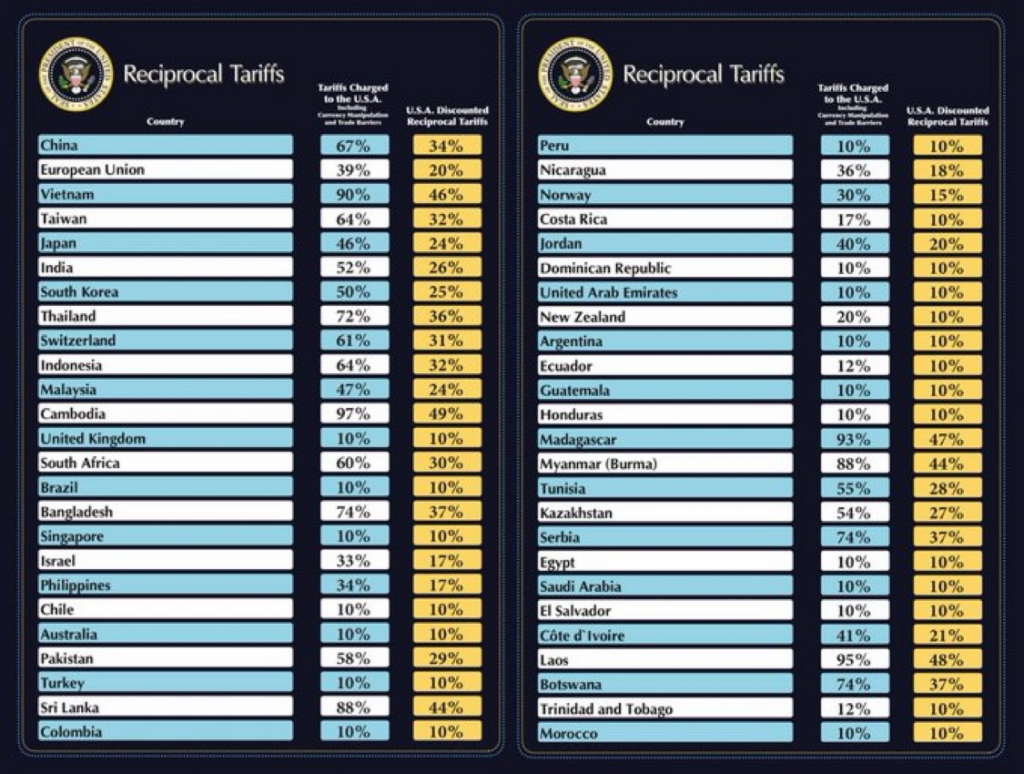stock market
The Changing Job Market and Its Impact on the Economy and Stock Market

The Job Market in 2024: A Shift Towards Frequent Job Changes
According to recent surveys, 95% of American workers planned to look for a new job in 2024. One of the main reasons behind this trend is financial necessity. 45% of American workers say they need a higher income to keep up with inflation and rising living costs. Job hopping has become a common strategy for workers seeking better compensation, career growth, and job satisfaction.
Historically, job switchers tend to increase their salaries more quickly than those who stay at the same company. In February 2024, individuals who stayed in their jobs for more than three months experienced an average salary increase of 5.1% year-over-year, whereas those who switched jobs saw an increase of 5.9%.
The Economics of Job Hopping: A Double-Edged Sword
While job hopping can lead to higher salaries and better career opportunities, hiring professionals warn about moving too quickly up the corporate ladder. Companies might view frequent job changes as a sign of instability, making employees vulnerable during economic downturns.
Many employers expect loyalty, yet workers often find themselves at the mercy of market conditions. Career strategists advise professionals to make calculated career moves to ensure long-term stability while benefiting from better financial opportunities.
Why Are Workers Leaving Their Jobs?
The reasons for job changes remain fairly consistent across various surveys. The top motivations for switching jobs include:
- Higher salary and better benefits
- Limited career growth opportunities
- Desire for better work-life balance
- Toxic work environments
- Unclear career advancement paths
Interestingly, Gen Z workers are 36% more likely than other generations to prioritize career advancement opportunities. Even when promotions are available internally, they often find it easier to switch companies rather than wait for an internal promotion.
Job Hopping Trends and Economic Indicators
The stock market and broader economy are directly affected by labor market dynamics. High employee turnover impacts business productivity, training costs, and overall company performance.
A Bureau of Labor Statistics (BLS) study found that American adults born between 1957 and 1964 held an average of 12.7 jobs between the ages of 18 and 56. Nearly half of these jobs were held before the age of 25. This data suggests that job switching has always been a part of workforce evolution, regardless of generational stereotypes.
The Stock Market’s Reaction to Employment Trends
Investor sentiment in the stock market is deeply tied to labor market trends. When job hopping increases, businesses experience higher turnover costs, lower retention rates, and increased hiring expenses. These factors can lead to:
- Lower earnings reports for publicly traded companies
- Reduced investor confidence in industries with high attrition rates
- Fluctuations in stock prices due to unexpected labor shortages
On the flip side, industries that adapt to job market trends by offering competitive salaries, hybrid work options, and career development programs often see stronger financial performance.
The Balance Between Loyalty and Strategic Career Moves
Despite the advantages of job hopping, long-term tenure is still highly rewarded in most organizations. Employees who stay at a company for several years benefit from accumulated bonuses, retirement contributions, and executive-level promotions. However, younger workers argue that the incentives to stay in one company have significantly declined, making job switching a more attractive option.
The Future of Job Stability and Economic Growth
The job market is evolving, and workers today must navigate a landscape that requires both strategic career planning and financial foresight. While frequent job changes can lead to salary boosts, employees must weigh the benefits against long-term career growth and financial stability.
Additionally, companies must recognize the importance of employee retention strategies to maintain business stability and investor confidence.
Final Thoughts: Making the Right Career Moves
Workers should assess their career goals based on:
- Skill development rather than just salary increases
- The economic climate and job market trends
- Long-term career trajectory vs. short-term financial gains
The economy and stock market will continue to react to these evolving employment trends. Whether you’re a job seeker, employer, or investor, staying informed about the labor market will help you make better strategic decisions for the future.

stock market
US Reciprocal Tax Hikes: Impact on India & Global Markets

Recently, US President Donald Trump announced significant Reciprocal Tax hikes on multiple countries, including India, China, Vietnam, Thailand, and Bangladesh. The impact of these tariffs on global trade and stock markets has been immediate, with some sectors feeling the heat while others see opportunities.
Let’s break down what these Reciprocal Tax mean for India and how different industries are likely to react.
Understanding the New Tariffs
Trump’s “America First” policy is aimed at reducing the US trade deficit and bringing manufacturing back to America. The US has a massive trade deficit of $360 billion with China, $200 billion with the European Union, and $46 billion with India. To counter this, new tariffs have been imposed on various goods.
Here’s a quick look at the tariff hikes:
- China – 34%
- Vietnam – 46%
- Thailand – 36%
- Bangladesh – 37%
- India – 26%
These tariff hikes have led to fluctuations in global markets, with the Nasdaq 100 futures dropping sharply. However, surprisingly, the Indian stock market remained stable with only minor corrections. The midcap and small-cap indices were mostly unaffected, and some sectors even saw positive movement.

Which Sectors Are Affected by this Reciprocal Tax?
The new tariff hikes are expected to have mixed effects on different sectors in India. Some industries will face challenges, while others could benefit.
1. IT Sector – Facing Challenges
Lets see how will this Reciprocal Tax impact the Indian IT sector. The Indian IT sector has been negatively affected, not directly due to the tariffs but due to the potential slowdown in the US economy. With 70% of IT revenues coming from the US, any economic downturn in America can significantly impact Indian IT companies.
Despite this short-term pressure, the Indian IT industry is well-positioned for the long term. Many companies have a highly profitable business model, strong return on capital, negligible debt, and high cash reserves. Additionally, the rise of Artificial Intelligence (AI) is not a threat but an opportunity for the IT industry to improve efficiency and create new business avenues.
If you are an investor, this correction in 2025 could be a buying opportunity rather than a reason to panic.
2. Electronics, Gems & Jewelry, and Auto Sector – Impacted by Tariffs
The electronics industry, which exports $14 billion worth of products to the US, will face a 26% tariff. Similarly, the gems and jewelry sector, which exports $9 billion, and the auto sector, which is subject to a 25% tariff, will also see challenges.
These industries may have to adjust pricing, find new markets, or absorb higher costs, impacting their short-term profitability.
3. Pharma Sector – A Bright Spot
The pharma industry, which exports around $9 billion to the US, has been exempted from these Reciprocal Tax hike. This led to an increase in pharma stocks, making it one of the best-performing sectors in the market.
While this exemption is a relief, investors should closely monitor how policies evolve, as any future changes in trade relations could still impact the sector.
4. Textile Industry – Gaining Market Share
One of the most promising sectors benefiting from these tariffs is textiles. With significant tariffs on China, Vietnam, and Bangladesh, Indian textile exporters may find an opportunity to expand market share in the US.
Companies like Goenka Exports and Indo Count have already seen positive movement, and this trend could continue in the coming months.
Long-Term Implications: Can India Benefit?
While tariffs create short-term disruptions, they can also open new opportunities. The US-China trade tensions have already pushed companies to explore alternative manufacturing hubs. This is where India can step in.
Many global companies are looking to reduce dependence on China. The China Plus One strategy, which encourages diversification, is now stronger than ever. If the Indian government supports the manufacturing sector through Production Linked Incentive (PLI) schemes, ease of doing business, and infrastructure improvements, India could become a key global manufacturing hub.
Sectors That Remain Unaffected
Not all industries will feel the impact of these tariffs. Some sectors will continue operating without much disruption, including:
- Banking and Financial Services
- FMCG (Fast Moving Consumer Goods)
- Consumer Durables
- Travel & Tourism
These sectors are domestically driven and less dependent on exports, making them more stable investment choices in the current environment.
Final Thoughts: Opportunity or Risk?
The latest tariff hike by Trump presents both challenges and opportunities for India. While some export-driven sectors may face pressure, industries like pharma and textiles are showing positive momentum.
For long-term investors, this could be an opportunity to explore sectors that are likely to benefit from the shifting global trade dynamics. However, policy changes, global economic conditions, and trade relations should be monitored closely.
What do you think? Will these tariffs create new opportunities for India, or is it a major risk for our economy? Let me know your thoughts in the comments.
If you found this analysis useful, share it within your network. Stay tuned for more updates on global markets and economic trends.
Checkout more such stock market news related blogs here . Follow us on Tradealone for quick updates.
-

 defense4 months ago
defense4 months agoHAL Share Price Target 2025: Motilal Oswal Sees 27% Upside for Hindustan Aeronautics
-

 FMCG5 months ago
FMCG5 months agoThe FMCG Sector: Challenges, Opportunities, and the Rise of Quick Commerce
-

 news3 months ago
news3 months agoComputer Age Management Services (CAMS) Q4 and FY25 Results: Growth Across Segments
-
Uncategorized5 months ago
Hello world!
-

 auto5 months ago
auto5 months agoTata Motors Stock Analysis: A Roller Coaster Journey of Price Movements
-

 Editor4 months ago
Editor4 months agoSwan Energy Future Outlook 2025 | Growth in Energy, Real Estate & Shipbuilding
-

 Editor4 months ago
Editor4 months agoMarket Uncertainty, AI Disruption & Investment Wisdom: A Conversation with Sushil Kedia
-

 Editor5 months ago
Editor5 months ago10 Steps to find BEATEN DOWN Stocks that can BOUNCE Back



binance
April 23, 2025 at 1:39 am
Thanks for sharing. I read many of your blog posts, cool, your blog is very good.